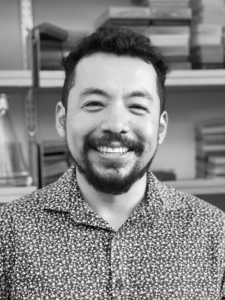Dr. Carlos Santibanez-Lopez
Science Building 206
Santibanezlopezc@wcsu.edu
203-837-8233
https://www.arachnomics.org/
BIOGRAPHY
I am an evolutionary biologist fascinated by venomous arthropods and the molecular diversity of venoms as a potential driver of adaptation and diversification. I grew up in Mexico, which harbors the peak of scorpion diversity in the world. Therefore, to understand the diversity of scorpions, I first trained as an organismal biologist in Mexico’s premier research university and pursued foundational work in scorpion systematics. Later, to understand the molecular dimension of venom diversity, I did postdoctoral training to learn about scorpion venom composition. To continue this work, as well as branch out into developmental genetics, I worked on scorpion phylogenomics, venom diversity, and development/evodevo at UW-Madison in Wisconsin.
RESEARCH INTERESTS
The research program I am developing combines computational modeling and genome-scale empirical datasets to address two major questions in evolutionary biology: how do evolutionary innovations arise and what impact do they have on biodiversity? To address these queries, I deploy a multidisciplinary suite of approaches spanning morphometric analyses, phylogenetic methods, transcriptomics, genomics, and computational tools. A major element of my research program addresses the evolutionary dynamics of venoms, a key innovation in arthropod groups such as scorpions. In tandem with fieldwork campaigns, I have integrated this list of approaches recently to show that a subset of venom peptides exhibits remarkable phylogenetic inertia across the scorpion tree of life. Another component of my research applies developmental transcriptomes, gene expression, and fluorescent immunohistochemistry to decipher the evolutionary and developmental origins of book gills in horseshoe crabs and book lungs in arachnids. The goal of this work is to understand how modifications of posterior appendages made possible the advent of terrestrialization. Going forward, I aim to bring these skillsets to bear to address the developmental genetic basis for venom gland morphogenesis in venomous arachnid orders (scorpions, spiders, and pseudoscorpions) using such multidisciplinary approaches. More importantly, every component of my research program is immediately amenable to participation by undergraduate students. Therefore, as a student in my lab, you will have the opportunity to develop skills in venomics, DNA,RNA and Amino acid sequencing and bioinformatic analysis. Lastly, my research is also possible due to a tight collaborative network between my lab and the Sharma Lab (at UW-Madison), the Gavish-Regev Lab (NNHC, the Hebrew University of Jerusalem), the Museo Argentino de Ciencias Naturales Bernardino Rivadavia (Argentina), and the Graham BioSciences Lab (at Eastern Connecticut State University).
SURF PRIMARY SETTING
Laboratory and field work.
SKILLS TO BE ACQUIRED DURING FELLOWSHIP
Analysis of Next Generation Sequencing; Phylogenomic analyses; Venomic analyses; Scientific writing and presentation.
SKILLS REQUIRED TO BE ELIGIBLE FOR A FELLOWSHIP IN THIS LAB
Interpersonal communication and active listening skills; Ability to work well independently; Strong organization and time management skill; Flexible and self-motivated; Comfortable using computers; Invertebrate Zoology and introductory evolution knowledge desired (but not required).
| Former SURF Fellows |
Faculty Mentors |
|||
|
|
|
|
 |
|






